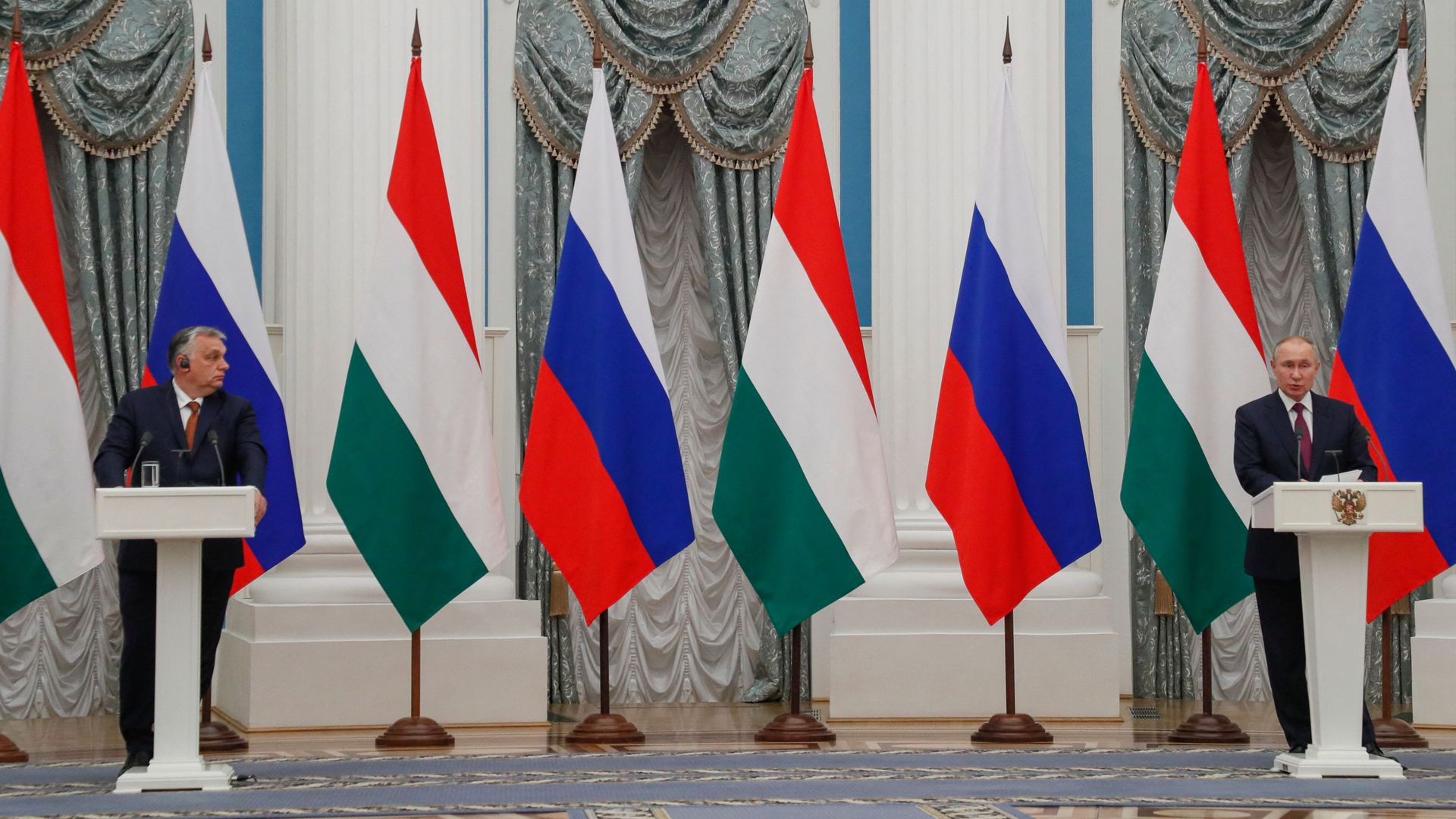Hungarian Prime Minister Viktor Orbán and Russian President Vladimir Putin at a press conference Tuesday. Photo: Yuri Kochetkov/Pool/AFP via Getty Images
Russian President Vladimir Putin said Tuesday that the U.S. and NATO had "ignored" Russia's main security demands in written responses transmitted to the Kremlin last week.
Why it matters: The comments mark the first time Putin has publicly discussed the crisis stemming from Russia's military buildup near Ukraine since Dec. 23, before a flurry of diplomacy with the West over Moscow's demands for a freeze on NATO expansion.
What they're saying: "It is already clear that Russia's fundamental concerns have been ignored. NATO refers to the right of countries to choose freely, but you can not strengthen someone's security at the expense of others," Putin said at a press conference with Hungary's Prime Minister Viktor Orbán, according to an interpreter.
- "We haven't seen adequate consideration of our three key requirements concerning the prevention of NATO expansion, the refusal to deploy strike weapons systems near the Russian borders as well as the return of the military infrastructure" to NATO's 1997 borders, he continued.
- Orbán, the right-wing leader of an EU and NATO country with close ties to Russia, said he was in Moscow for a "peacemaking visit," and that he told Putin there "is no single leader who would like to see a conflict with the Russian Federation breaking out."
Reality check: NATO has long said it is a "defensive" alliance, and that all sovereign countries have the right to make their own foreign policy choices.
- Russia is seeking a ban on Ukraine joining NATO, despite the fact that there is no indication the alliance will accept Ukraine as a member any time soon.
- The U.S. and NATO have repeatedly said that it is Russia's aggression — including the 2008 invasion of Georgia and 2014 invasion of Ukraine — that has prompted the alliance to increase its presence in Eastern Europe.
Driving the news: Secretary of State Antony Blinken spoke with Russian Foreign Minister Sergey Lavrov earlier on Tuesday about the U.S. and NATO's written responses to Moscow's demands, which opened the door to cooperation on arms control but ruled out any limitations on NATO membership.
- Russia is now crafting its own formal responses to the Western proposals, but few expect any kind of breakthrough considering the distance between each side's red lines.
- In the meantime, Russia continues to mass forces and equipment on Ukraine's borders — including in Belarus, where the U.S. has warned an additional 30,000 Russian troops are expected to be deployed by early February.
What to watch: Putin said he hopes to continue the diplomatic dialogue with French President Emmanuel Macron, who will soon visit Moscow as he seeks a greater role for the EU in defusing the crisis.
The other side: With Orbán in Russia, Ukrainian President Volodymyr Zelensky hosted U.K. Prime Minister Boris Johnson and Polish Prime Minister Mateusz Morawiecki in Kyiv on Monday.
- The U.K. and Poland have taken on an outsized role in the crisis, supporting Ukraine with significant arms shipments and warnings about the consequences Putin will face if he further invades.
- "This is not going to be a war of Ukraine and Russia. This is going to be a European war, a fully fledged war," Zelensky said at a joint press conference with Johnson.
Source: Read Full Article

